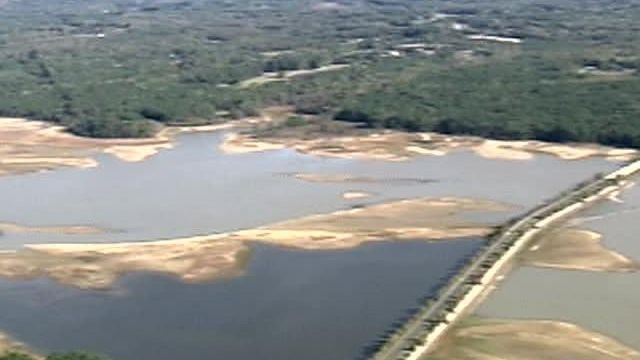Rainfall Brings Up Lake Levels a Bit
Rainfall across North Carolina brought good news for drought-starved lakes and reservoirs.
Posted — UpdatedFalls Lake, Raleigh's primary reservoir, had been about 8 feet below normal. It rose about 8 inches during last week's rainfall.
“We were out over 100 days, and now we're at 111 days,” Ed Buchan with Raleigh's Department of Public Utilities, said.
Durham's main water source, Lake Michie, had been down 14 feet. It had risen a couple of feet, but not enough for the city to stop pulling water from the Little River Reservoir. City officials said the rain did help slow the drain.
“Even though we had rain, we still need them to cut back and use less water. That will extend our supply and avoid having to go to tighter restrictions,” James Lin, a Durham water conservation specialist, said.
Levels at Jordan Lake were nearly 6 feet below normal before the rain. The lake, which supplies Cary and Chatham County, gained just over 2 feet.
Rocky Mount's Tar River Reservoir was 15 feet below normal. It rose 12 feet.
In Siler City, in Chatham County, the Rocky River Reservoir rose enough for the city to lift emergency water conservation requirements because it now has a 120-day supply. Mandatory conservation restrictions are still very much in effect, however.
Siler City had been facing a 60-day water supply before last week's rainfall.
In Chapel Hill, water levels at University Lake and the Cane Creek Reservoir had been to 42 percent of capacity, and they are now more than 50 percent full.
• Credits
Copyright 2024 by Capitol Broadcasting Company. All rights reserved. This material may not be published, broadcast, rewritten or redistributed.






